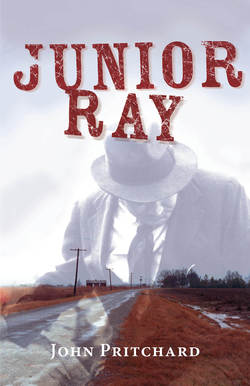Читать книгу Junior Ray - John Pritchard - Страница 8
На сайте Литреса книга снята с продажи.
Interviewer’s Comment
ОглавлениеThis book is not for the squeamish, yet it is essential reading for those who wish to understand the Mississippi Delta, its conflicts of class and race, its angels and, most certainly, its demons.
It was in my investigation of this peculiar region that I made two significant discoveries: (1) that the Notebooks of Leland Shaw did exist and (2) that they were in the possession of a Mr. Junior Ray Loveblood, of whom my mother had heard much from my uncle, the late Owen Glyndwyr Brainsong, formerly the Superintendant of Education for Mhoon County.
I was informed by the grandson of a Mr. Mudd that Mr. Loveblood had Shaw’s diaries—works of supposed literary merit, which, frankly, I had consigned to the closet of local mythology, or at least to the same category as that of the “works” of Professor Floodwater Scott whose famous footlockers everyone believed to be filled with his detailed record of the Southern oral tradition . . . turned out to be totally oral.
The thing is, I understood instantly the magnitude of the journals I discovered to be, in fact, in Mr. Loveblood’s possession—and I think Uncle Owen would have agreed. Namely, that just as Walter Anderson was the great Artist of the Mississippi Coast, so Leland Shaw might well be—or have been—the other great Poet of the Mississippi Delta. I hasten to assure the reader that I do not for a single moment mean to diminish the literary contribution and stature of William Alexander Percy. Indeed, though both Percy and Shaw were regional and cultural countrymen, neighbors, in fact, I can see nowhere that their work conflicts even in the slightest.
“Good God!” I had said to myself. “I must obtain those Notebooks!” Thus, I went to see Mr. Loveblood—or Junior Ray, as I came to know him.
He was not hard to find, and it turned out that what I had been told was true. I have now seen, first hand, The Notebooks of Leland Shaw, and, throughout the text of the interview, samples are provided for the reader. The mystery is why Junior Ray kept them all these years, when, after knowing anything at all about Junior Ray, one might easily have assumed he would have used them for kindling.
I know now that to have thought so would be to misapprehend the make-up of and to grossly underestimate possibly one of the most complex and perhaps genuinely archetypal characters ever to have lived in that most distinctive part of the deep American South. Yet, even in Junior Ray’s loud insistence, in reference to Shaw’s Notebooks, that “They ain’t nothin but a pile of crap,” he makes it quite clear he has no intention of giving up his ownership of Shaw’s work. And so I became acquainted with a genuine enigma, Junior Ray Loveblood, and it was from him, finally, that I decided to learn as much as I could, from his rather unrestrained perspective, about the Delta.
On the face of it, choosing Junior Ray as an informant might have seemed an odd option for a serious scholar, such as I, in the field of Anthropological Philology; yet, I have observed that among all the rigorous disciplines, flexibility is a virtue, and, most assuredly, opportunity is its reward. As I saw it, I stood to benefit doubly by having access to Shaw’s “Notes” as well as—how shall I put it . . . also to Shaw’s antithesis, Junior Ray Loveblood. In that way, I believed I might obtain a most unusual three-dimensional grasp of the region.
It is of the utmost importance that I communicate to you, the reader, that my interest in Shaw’s “Notes,” both as literature and as record, was actually secondary to my curiosity about the place; for it was the place, I felt, that had made Shaw, and from that point of view, it seemed to follow that it was in fact the place that had really produced the “Notes.” Suddenly I understood. In the single powerful and didactic moment of an instinctual epiphany, I saw that the place had two voices. One was that of Shaw. The other was Junior Ray’s. The situation was unique, and I embraced it.
Junior Ray was not easy to interview. At first he didn’t want to do it, but after we began, as time went on, he seemed to enjoy the attention, so I did not rein him in, as one or two others suggested I should do for sake of propriety.
Instead I sat quietly and took down all he had to tell me about Leland Shaw and about that time and place. I recorded as accurately as I could all he said, precisely the way he said it. The text that follows consists of Junior Ray’s narrative interspersed with selected excerpts from Shaw’s “Notes,” so that the reader can indeed hear the two voices, those of Junior Ray and Leland Shaw, as separate realities of a single illusion: that mythical place Mississippians know as The Delta.
— Owen G. Brainsong II
